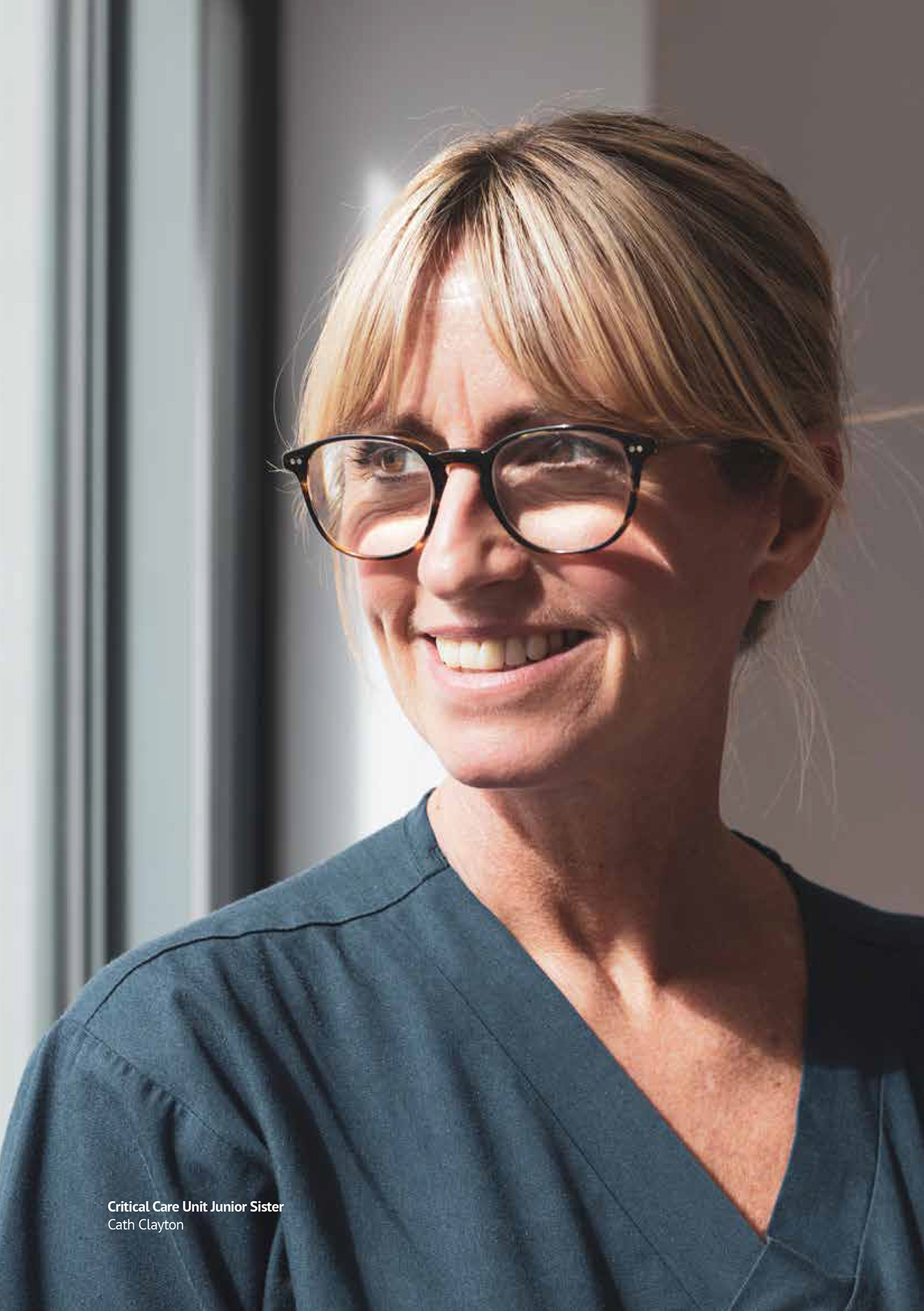
About two years ago, we started a Follow-Up Clinic for critical care patients who had been ventilated to invite them to return to hospital following discharge to discuss and get help for physical and/or psychological problems.
Setting up the Clinic highlights the importance of providing good aftercare for patients following a critical illness. In line with recommendations by the National Institute for Health and Care Excellence (NICE) all patients admitted for longer than 96 hours are invited to the clinic. NICE recommends that the patient should be offered a meeting with a member of the healthcare team who is familiar with their critical care treatment and recovery.
Clinics are held weekly and patients tell us they really value their appointment as, for many, it’s the first opportunity to talk about their experiences. It’s important to remember that when patients leave Critical Care to continue their recovery on another ward, it’s often just the start of a prolonged period of rehabilitation.
Some patients visit the clinic to know more about what actually happened to them while they were in critical care, as many don’t recollect their stay.
In addition, staff can discuss with the patient what to expect during their long term rehabilitation. A number of patients will have memories of bizarre dreams or hallucinations which is common for patients who have been in intensive care. Some patients continue to experience these dreams after being discharged home. There are a number of reasons why these dreams can occur such as medication given or disease processes.
Often they can hear what is going on around them, they can feel the treatment and care being provided to them and can partially see things in their line of vision as they regain consciousness. It is important for patients to be able to discuss these episodes and make some sense of their experiences.
At the Follow-Up Clinic, these issues can be discussed in details in a comfortable environment. Patients also get the opportunity to re-visit the Critical Care Unit should they wish to do so.
Family and friends are great comfort but often a patient doesn’t have someone to answer the questions they have, such as why has my diet changed, why can’t I walk like I did before, or why am I having nightmares?
Putting their illness into context can be difficult. They want answers but families and carers who have been told to expect the worse often want to wrap their loved one in cotton wool when they get home. Dealing with the psychological trauma is sometimes seen as being secondary to recovering from the physical injuries.
Patients need – and want - an explanation. The human brain is a wonderful thing which tries to make sense of everything it encounters. But when you are sedated, there’s no one to explain, to share the experience and make sense of what’s happening in your subconscious mind.
This is why Clinic patients are actively encouraged to return to the Critical Care Unit to speak with the nurses, doctors and physiotherapists who participated in their care. In truth, they’re relieved to know what they are experiencing has happened to many others and is neither unique, nor unexpected.


